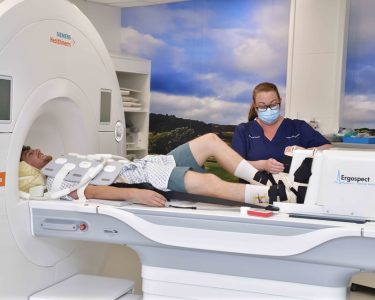Researchers at the University of Leicester have clinched an award for their ground-breaking work using artificial intelligence (AI) to detect Covid-19.
Professor Yudong Zhang and Dr Shuihua Wang created a new AI tool to detect the disease with greater accuracy.
The software analyses chest CT scans and uses deep learning algorithms to diagnose the disease. With an accuracy of 97.14% on real clinical dataset, it is currently the world’s most successful Covid-19 diagnostic tool.

Now established computer science publisher, Elsevier, has announced their research has clinched the 2022 Best Paper Award for Information Fusion.
Professor Zhang said: “It is wonderful to have our research and work recognised in this way by our peers. This award means our work has been recognized by a panel of top experts in the information fusion field. It also brings recognition and visibility to our lab, department, and university and could lead to new opportunities for collaboration, funding, and research.”
Explaining the research, Dr Zhang went onto say: “Our research focused on the automatic diagnosis of COVID-19 based on deep feature fusion from graph convolutional network and convolutional neural network (FGCNet). The results showed that our method could find the suspicious regions in the chest images automatically and make accurate predictions based on the representations. The accuracy of FGCNet means that it can be used in the clinical diagnosis of COVID-19 or other chest infectious diseases, which may help to control the spread of the infectious virus.
“We hope that, in the future, this type of AI technology will allow for automated computer diagnosis without the need for any bit of manual intervention to create a smarter, more efficient healthcare service.”
Currently, the diagnosis of COVID-19 is based on nucleic acid testing or PCR tests as they are commonly known. However, these tests can produce false negatives, and results can also be affected by hysteresis – when the physical effects of an illness lag behind their cause. AI, therefore, offers an opportunity to rapidly screen and effectively monitor Covid-19 cases on a large scale, reducing the burden on doctors.
The tool has been used in recent weeks in hospitals in China to identify and grade H1N1 influenza successfully.
Researchers are now developing this technology further in the hope that the Covid computer may eventually replace the need for radiologists to diagnose COVID-19 in clinics. The software, which can even be deployed in portable devices such as smart phones, will also be adapted and expanded to detect and diagnose other diseases such as breast cancer and cardiovascular diseases.






